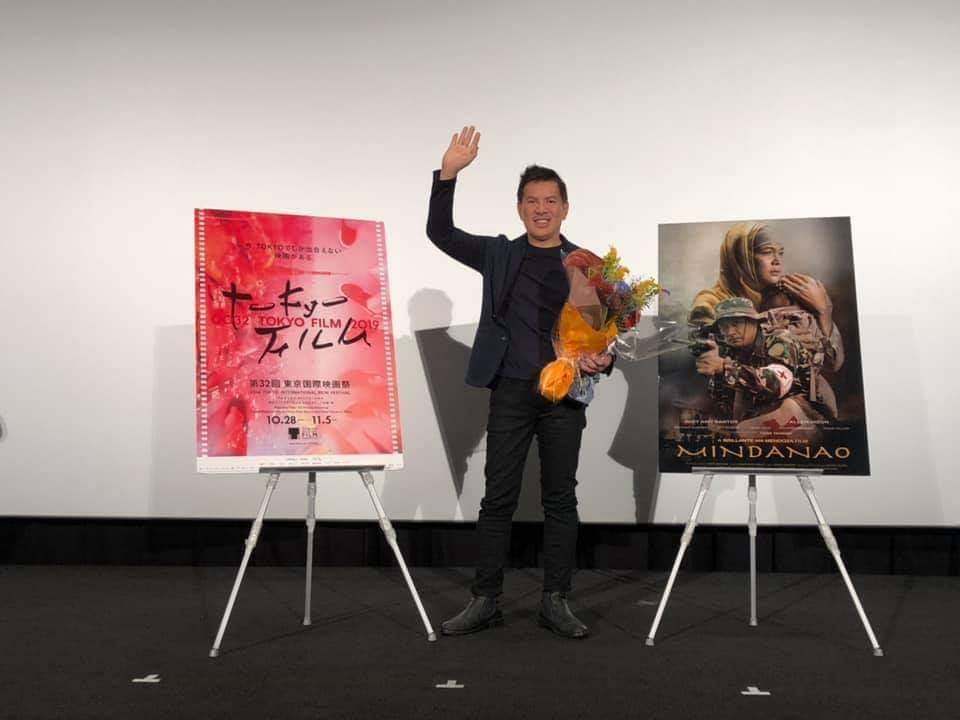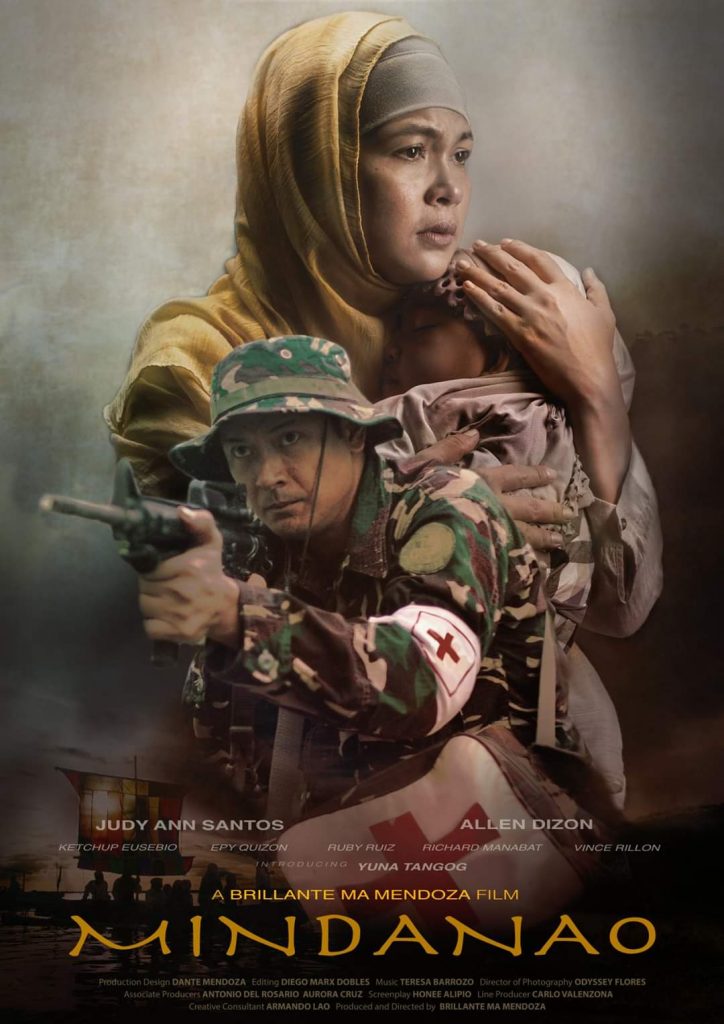A 123-minute film on death told through the eyes of a child, Brillante Mendoza’s “Mindanao” has passed numerous film festival selections all over the world, including ones in Taiwan, India, Estonia, and Egypt — earning the powerful film international recognition.
Since its world premiere at the 24th Busan International Film Festival (BIFF), the latest work of critically-acclaimed filmmaker Brillante Mendoza has been announced to take part in the Taipei Golden Horse Film Festival (TGHFF), Kolkata International Film Festival (KIFF), Tallinn Black Nights Film Festival (TBNFF), and Cairo International Film Festival (CIFF), which all happened in the month of November.

Penned by Honee Alipio and starring Judy Ann Santos and Allen Dizon, the film is about the struggles of Saima (Santos), wife to military medic (Dizon) and mother to a young girl battling cancer.
The film was screened on November 8, 12, and 18 as part of the Viva Auteur section at the TGHFF. The film is also an entry to Kolkata’s International Competition: Innovation in Moving Images. It had screenings on November 11 at Nazrul Tirtha and November 13 at Rabindra Sadan. The 25th KIFF screened 366 movies in 17 venues from November 8 to 15. It had its European premiere at the TBNFF in Estonia on November 15, followed by screenings on November 19 and 21. Tallinn is among the 15 A-list film festivals rated by the International Federation of Film Producers Associations.
Reacting to the global response the film has gotten, Brillante Mendoza looks more into how the story reflects the Filipino people as a nation, and, in turn, how it showcases local culture to the rest of the world: “So far, the feedback has been very positive. We always accept that there are those who do not understand our culture or how we are as a people or as a nation, what our problems are or are unable to feel it but it would surprise you how they cried and can relate to the story and even though they’re from different parts of the world they can easily connect the animation to the lives of Saima’s family. I can say the film Mindanao has been pretty successful in representing us internationally.”
He elaborated by explaining what compelled him about the story that got him to direct the film: “The story of a child with cancer and the idea of death from their perspective affected me very much and there should be films that focus and bring more awareness about the disease, and the support the people need in these situations. And certainly having been given the chance in this industry, I think we should use it also to show to the world the stories of Mindanao, that whatever our difference may be we are all human beings, we suffer, we are hurt by circumstances.”
Ultimately, the main thing Mendoza envisioned for the film was to send a message about unity, and how much of a powerful tool it is in ending war. He wanted to redirect the audience’s focus on the real enemy (disease) and what we can do as a people to fight it, if we just choose to do it. And to tie it all in together, he showed this multiple times in the film, highlighting how unity and choices can affect everybody’s lives, from civilians to soldiers, and to the Mindanao people as a whole.

He stated, that “..parts of the epic tale of Raja and Sulaiman paralleled the stories of Saima and her family and the soldiers, and of course the lives of the Mindanao people. Sometimes even when we just want to live peacefully and care for our loved ones, like Saima Aisa and Malang—heavy problems (represented by the dragons) like cancer and war affect the family, and our land. There are people like the warrior-brothers Raja and Sulayman—like Malang who must sacrifice a lot, even their families, to help eradicate or solve the problems. Malang is an integree in the armed forces, he is ready to fight for the right things but he feels torn too. The child’s cancer parallels the troubles in areas of Mindanao and also our nation—we do not wish it, nobody needs to suffer this way and we must realize what our priorities should be, what actually matters—it’s loving each other, doing what we can to serve and focus our time and effort for the good. We can do so much if we actually pause and think and of course, decide.”
After its global debut at the BIFF, “Mindanao” was screened at the Tokyo International Film Festival. With all the rounds that “Mindanao” has made internationally, Mendoza admitted that he is all the more looking forward to his film’s screenings in the Philippines. “Mindanao,” which has been recently awarded a Grade A by the Cinema Evaluation Board, is an official entry to the Metro Manila Film Festival in December. “Gusto ko naman maramdaman, as a filmmaker, for my 13th film and my 15th year in the industry, makaramdam ako ng, ‘Uy, pinapanood ang pelikula, ha! Sarap ng pakiramdam may nanood ng pelikula ko,’” he told Miguel Dumaual of ABS-CBN News.









